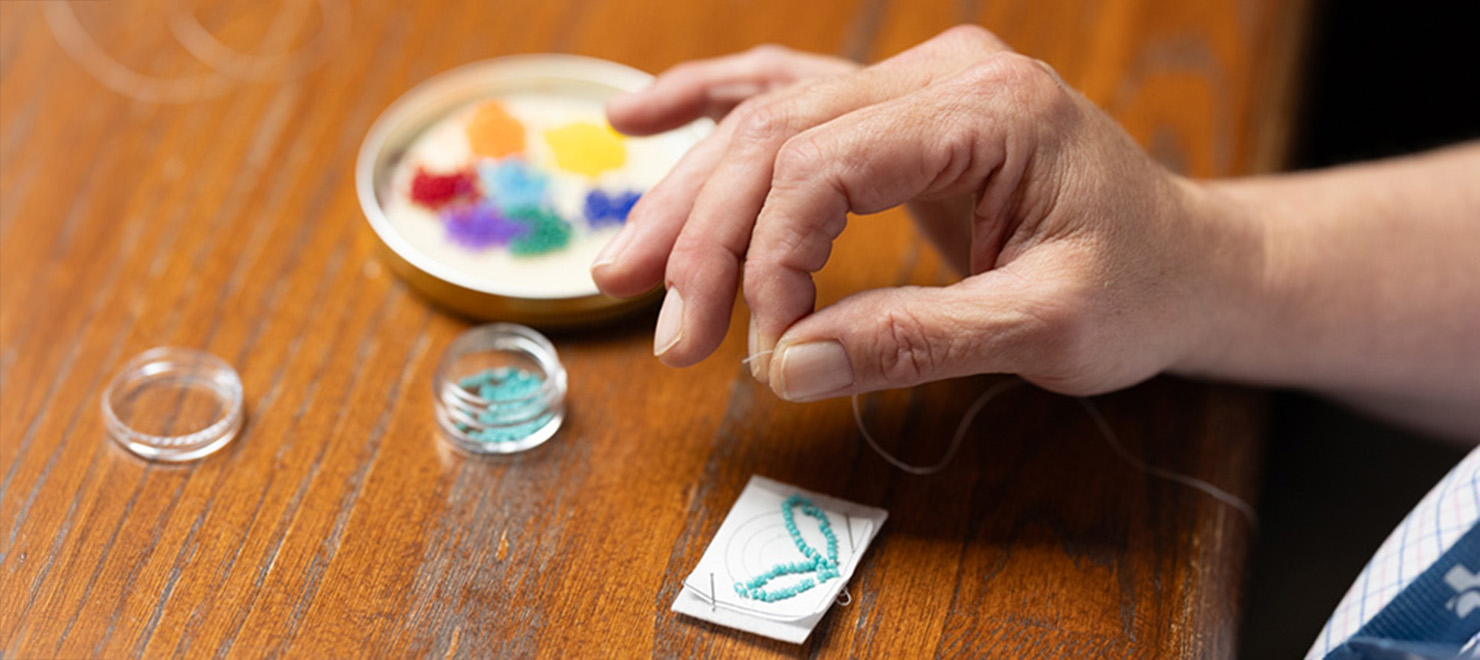
Shift workers may have trouble sleeping because their irregular schedule may interfere with their internal sleep cycle. Using “shut down” rituals and writing down what keeps coming to mind are two strategies that can help improve sleep.
Sleep is something we all struggle with sometimes, and yet it is one of the most important things we can do for our health. How do you ensure you’re getting enough sleep, especially as a shift worker? Sleep physician and researcher Dr. Tetyana Kendzerska and health psychologist Dr. Kerri Ritchie from The Ottawa Hospital offer insights and sleep tips for shift workers.
How can shift work affect sleep?
Shift work can affect our natural sleep/wake cycle, called the circadian rhythm. Circadian rhythm is like a 24-hour clock inside our brains. It helps us cycle between being awake and feeling sleepy in a regular, predictable rhythm.
“With shift work, we are messing with this internal clock,” explained Dr. Kendzerska, sleep physician, sleep and respirology researcher, clinical investigator and associate scientist at The Ottawa Hospital. “Shift workers may have limited sleep, fragmented sleep or interrupted sleep. They may not be reaching all the sleep stages they need to get a good quality sleep,” she said.
Shift work can also affect other body systems, like digestion, which can have a negative impact on sleep quality.
“We have internal clocks for other organs and body functions as well,” she explained. “If our sleep clocks and our digestive clocks are out of sync, for example, our stomachs may be in high gear just as we are trying to settle down to sleep. If that happens, both our stomach function and our sleep quality can suffer.”
Why is sleep important?
Sleep, like exercise and nutrition, is an important factor in overall health. It helps us fight infection, plays a role in retaining memory and helps prepare us for the next day. Good sleep can support good health, while poor sleep can cause poor health.
So, if sleep is so central to our health, why do some of us have a hard time getting to sleep and staying asleep?
“We live busy, plugged in lives,” said Dr. Kerri Ritchie, clinical psychologist and Professional Practice Coordinator of Psychology at The Ottawa Hospital. “Many of us are finding it more difficult to unplug from our devices. Our brains are on the constant lookout for new information, and thanks to technology, we have easy 24/7 access to it. That can affect when and how well we sleep.”
What are the symptoms of not getting enough sleep?
Many shift workers are familiar with the less serious symptoms of not getting enough sleep. They can include irritability, trouble concentrating, ongoing fatigue, lower productivity, morning headaches and falling asleep unintentionally, but Dr. Kendzerska warns that chronic lack of sleep may cause more serious health problems, such as:
- mental ill health like anxiety and depression
- cardiovascular diseases
- diabetes
- metabolic changes
- lower pain tolerance
- comorbidities (two or more health conditions at the same time.)
Not sleeping enough can also be dangerous. It can be a factor in car crashes, workplace accidents and injuries.
Night shift vs. day shift

According to Dr. Kendzerska, regular night shift workers might in fact have an easier time adjusting their internal clocks than people who work some days and some nights.
“Regular night shift workers need to change their internal clock just once,” she said. “Eventually your body learns to sleep during the day and work at night. But when a person is on an irregular shift, he or she has to keep changing their alertness hours and it is harder for their internal clock to develop a regular rhythm.”
The Center for Advanced Research in Sleep Medicine, in the Hôpital du Sacré-Coeur de Montréal, , has developed a free web tutorial to help people cope better with night work.
How much sleep should an adult get?
Based on populational studies, Dr. Kendzerska recommends that adults try to get seven to eight hours of sleep per night. This amount of sleep should help most people function properly and make sure that they have enough energy throughout their day.
But for many people, getting seven to eight hours of uninterrupted sleep is easier said than done.
“Although we should all try to get enough good-quality sleep, we should also be realistic about how much we can actually get,” explained Dr. Ritchie. “Some things, like taking care of a young child or an ill parent will impact when and how much sleep we get, and that’s understandable.”
Tips for shift workers to get better sleep
Did you know?
- Some initial research has found that you can ‘bank” your sleep time by adding some sleep beforehand (e.g. on a different day).
- Sleep cycles are 90 to 110 minutes. It is helpful to get at least one sleep cycle. For those who work overnight, try to take a nap in the evening before work. Even if you don’t fall asleep, spending time in a dark and quiet room will help you feel more rested and relaxed, and help you feel more alert at work.
Here are a few ideas and strategies from Dr. Ritchie that can help people, including shift workers, optimize their sleep.
Try to minimize
- exercising close to your bedtime.
- using technology in the late evening.
- consuming stimulants like caffeine and nicotine.
- drinking alcohol; it supports relaxation, but interrupts the sleep cycle.
- eating big meals close to your bedtime.
Try out
- “shut down” rituals, like having a dark room, a comfortable bed, and the right room temperature.
- taking a warm bath one to two hours before bedtime.
- writing down whatever keeps coming back in your mind so that your mind doesn’t keep trying to remember the information.
- playing white noise.
- listening to music.
- counting backwards.
- breathing deeply.
- turning your clock around so that the light does not disrupt your sleep and so that you are not focusing on the time.
If you still can’t sleep, try resting with an audio book. This will give your brain a break by having something else to focus your thinking.
World Sleep Day is March 13, but sleep health is important all year round. Matthew Walker, professor of neuroscience and psychology at the University of California, Berkeley, has more tips on how to improve your sleep.
Employees of The Ottawa Hospital can find more resources for shift workers on the Shift Worker Support page of myHospital.
Do I have a sleep disorder?
If you think something is wrong with your sleep, talk to your family doctor or primary care provider.
“Sometimes I see patients who have been suffering with poor sleep for ten years,” explained Dr. Kendzerska. “Some sleep disorders, like sleep apnea, are relatively easy to fix with positive airway pressure treatment. Sometimes it’s fixed in one day, and the patients say ‘wow, I have a different life now. Why have I been suffering for so long?’”
You may be referred to The Ottawa Hospital’s Sleep Centre, which can help diagnose and treat patients with sleep-related disorders.

Support patient care and research at
The Ottawa Hospital
You might also like…
Bringing communities together, one stitch at a time
In celebration of June being both National Indigenous History Month and Pride Month, The Ottawa Hospital hosted a beading workshop for Indigenous and 2SLGBTQIA+ staff and their allies.
Aging well: Guidance for older adults
In this special video series for both older adults and their loved ones, geriatric care specialists from The Ottawa Hospital offer guidance on navigating common health-care challenges that may arise with aging.
How to stay safe around water this summer
Drowning can happen to anyone — even strong swimmers. Emergency physician Dr. Christian Vaillancourt debunks common myths about drowning, explains how to act quickly to save a life, and shares what you can do to keep yourself and your loved ones safe around water.
What’s the difference between an optician, optometrist, orthoptist and ophthalmologist?
“Do I need to see an optician, optometrist, orthoptist or ophthalmologist?” We asked Ophthalmologist Dr. Annick Fournier to break down each role so you will know who to consult for your specific eye care needs.
Understanding rabies: Risks, vaccination and what to do after a bite
Although rare in Canada, rabies is almost always fatal once symptoms appear. Infectious diseases expert Dr. Michaeline McGuinty shares how rabies is spread, when to get vaccinated and what to do after a bite.
“My story doesn’t have to be your story”: New screening test better at preventing cervical cancer
“I went from being a 32-year-old new mom to a cancer patient with an incurable diagnosis.” Alicia’s journey underscores the critical role of HPV testing in preventing cervical cancer. Discover how the new HPV test can save lives and find out how to book your cervical screening appointment with our “Superscreener.”


 To reset, hold the Ctrl key, then press 0.
To reset, hold the Ctrl key, then press 0.





